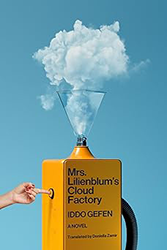Winner of the Sapir Prize, one of Israel’s most prestigious literary awards, How to Love Your Daughter relates the complicated history of a mother-daughter relationship gone awry. Told from the perspective of mother Yoella in a series of short vignettes, the novel opens with a scene of her hiding in the bushes, spying on her grown daughter Leah. The rest of the novel, a loose collection of memories out of chronological order, follows Yoella’s attempt to understand what led to her beloved daughter’s self-imposed estrangement. The deep, intense, all-consuming love between Yoella and young Leah is overshadowed by the reader’s knowledge of the coming alienation, which casts a pall even on joyous memories. As a result, the relationship at times comes across as overly close, or even codependent.
The tension between mother and daughter seems to begin during Leah’s adolescence. Yoella envies the intense friendships Leah forms with other adolescent girls. Her understanding of the world is molded by the novels she has consumed, and she peppers her memories with quotes from literary fiction by contemporary female authors like Margaret Atwood, Anne Enright, Elizabeth Strout, and Alice Munro.
With a history of mental illness, including an acute crisis during pregnancy and periodic episodes of severe depression, Yoella is perhaps not the most reliable narrator. And yet intense emotions always cloud objectivity in parent-child relationships. As Yoella points out, “ … our love for our children twists and reshapes reality right before our eyes.”
How to Love Your Daughter is a nuanced examination of a complex relationship, as well as a portrait of a mother trying to determine precisely where she went wrong — and how to undo her past transgressions. It becomes clear that even self-scrutiny won’t prevent future mistakes. “Worry is a straitjacket,” Yoella says, “and so is love.”
Lauren Gilbert is the Director of the Municipal Library of New York City. She was formerly the Director of Public Services at the Center for Jewish History.



